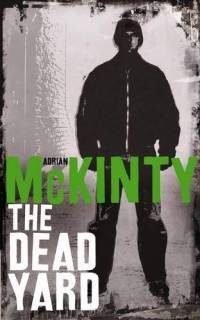It’s no accident that one of the most honored novels in Northern Ireland’s current crime-fiction boom is Stuart Neville’s The Ghosts of Belfast, whose admirers include James Ellroy and which won the Los Angeles Times Book Prize in 2010. Neville’s Gerry Fegan is a former Republican gunman haunted by the ghosts of the men, women and children he has killed. Those ghosts are only the most literal exploration of the Troubles’ afterlife to be found in contemporary Northern Irish crime writing.
“There were natural-born mentals and mental cases, nuts who had made themselves crazy through wielding a gun in the name of one military faction or another. There were natural-born cripples and those who had brought it on themselves, gunmen who had been shot, gunmen who had shot themselves, bombers who had blown their hands off, thieves who had been shot in the legs by terrorists because they (the thieves) were a menace to society, and you could see them hopping down the streets, wearing their disability with pride like it was some red badge of courage.”

“They say the air over Jerusalem is thick with prayers, and Dublin might have its fair share of storytellers, but this is where the real bullshit artists live. The air over this town is thick with lies. Thousands of prisoners have been released under the cease-fire agreements—thousands of gunmen walking these streets, making up a past, a false narrative of peace and tranquility.”
Now, tell me that thousands of crime stories are not walking those same streets, waiting to be written.
Northern Ireland’s crime writers are forever crossing the sectarian and other borders that have divided their land. Author Stuart Neville is Protestant, but Jack Lennon, the police inspector protagonist of Neville’s Collusion, is Catholic. And Brian McGilloway, from Derry in Northern Ireland, has made his hero, Benedict Devlin, an inspector with the Gardai, the Irish Republic’s police force.
“The main reason for it, I suppose,” McGilloway told Detectives Beyond Borders, “was to avoid the political. During the time of writing, policing was still a hot issue in Northern Ireland. I was aware that, as a Northern writer, people would rightly or wrongly look at the books for a political angle on the presentation of the [Police Service of Northern Ireland]. By filtering their presentation through Devlin’s eyes, it allows Devlin to direct, to some extent, the reader’s reactions and makes his response to the PSNI a personal rather than political one. . . . As for the Troubles—I wanted to write a non-Troubles book but, around the Border, it would be unrealistic to assume that they’re not there somewhere—this the only representation of the Troubles in Borderlands is the disembodied voice, talking about the past. It’s there, but increasingly insubstantial. Or that was my intention, at least.”
Here are some useful links about crime fiction from Northern Ireland:
Adrian McKinty’s Psychopathology of Everyday Life
Crime Scene NI, blog of author Gerard Brennan
Peter Rozovsky, Detectives Beyond Borders

Peter, a very good article and thanks for the the heads up on this site. I have not read any of Garbhan Downey’s novels, but I certainly will now. All three blogs you mentioned are excellent as well.
Thanks and you’re welcome.
Guildhall Press publishes some of Downey’s books, and that might be a good place to look for them. They also publish lots of interestting modern and contemporary Irish history, which you might like.
======================
Detectives Beyond Borders
“Because Murder Is More Fun Away From Home”
[url=http://www.detectivesbeyondborders.blogspot.com/]http://www.detectivesbeyondborders.blogspot.com/[/url]
[url=http://www.detectivesbeyondborders.blogspot.com/] [/url]
Thanks, and you’re welcome.
Guildhall Press in Derry publishes some of Garbhan Downey’s books. That might be a good place to start looking for them. They also publish a lot on local contemporary modern history and culture, which you might like.
======================
Detectives Beyond Borders
“Because Murder Is More Fun Away From Home”
[url=http://www.detectivesbeyondborders.blogspot.com/]http://www.detectivesbeyondborders.blogspot.com/[/url]
Thanks, and you’re welcome.
Guildhall Press in Derry publishes some of Garbhan Downey’s books. That might be a good place to start looking for them. They also publish a lot on local contemporary modern history and culture, which you might like.
======================
Detectives Beyond Borders
“Because Murder Is More Fun Away From Home”
Cracking article.
Stuart Neville is that rare writer who debuts to great fanfare, and not only lives up to it, but surpasses it at every turn.
As for the others, I confess I’ve not read them, but they’re now officially on my list!
Much obliged, Paul. The authors are pretty good, too.
======================
Detectives Beyond Borders
“Because Murder Is More Fun Away From Home”
Chris, I agree. Collusion was a hell of a book. Neville’s third, Stolen Souls, looks as it it;s taking an interesting turn into “ordinary” cime, though that crime is an off-shoot of one of shabby criminal arrangements he writes about in Collusion.
Thanks for the comment. You have some good reading ahead.
==========================
Detectives Beyond Borders
“Because Murder Is More Fun Away From Home”
DBeyondBorders, may I respectfully request that you pare down your .sig, and instead put that information in your profile? It gets a bit repetitious.
Thnaks for Shaering it